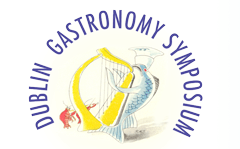Start Date
1-6-2022 9:30 AM
End Date
1-6-2022 9:45 AM
Description
Though singing is not a practice associated with culinary arts, the utilisation of the analogy illustrates the motivation and application of authentic positive health in practice that benefits well-being and flourishing. While the focus in most universities is to develop the positive qualities of students for a modern workplace, many of the practices are “at odds with contemporary models of education and evidence emerging from the scientific study of well-being” (Oades et al. 2011, 433). Of significance is that “more well-being is synergistic with better learning” (Seligman et al. 2009, 294). Mindful learning as a lens of awareness, leads to “greater sensitivity to context and perspective and greater control over our lives” (Langer 2000, 220). This mirrors White’s (2016) definition of positive education and its impact on student well-being. To promote human flourishing, and well-being, Joseph (2015) echoes the need to integrate positive psychology into professional practice in the classroom. Educators therefore have a responsibility to support the activities that make a student’s heart sing thus enabling students develop and unlock their full potential. As leaders of programme design, the authenticity of the educator’s approach influences authentic learning. Positive psychology is a contemporary framework for adopting such an approach. This paper explores the potential of integrating, mindful learning pedagogy, the science of positive health and positive psychology coaching, in culinary education, now and for the professional kitchens of the future. A co-created intervention with culinary students was investigated. The design of a new framework for culinary arts education is proposed.
DOI
https://doi.org/10.21427/z8r6-bv06
Making a Chef’s Heart Sing! The Role of Positive Health and Well-being - Moving Towards a Positive Health Framework for Culinary Arts Education.
Though singing is not a practice associated with culinary arts, the utilisation of the analogy illustrates the motivation and application of authentic positive health in practice that benefits well-being and flourishing. While the focus in most universities is to develop the positive qualities of students for a modern workplace, many of the practices are “at odds with contemporary models of education and evidence emerging from the scientific study of well-being” (Oades et al. 2011, 433). Of significance is that “more well-being is synergistic with better learning” (Seligman et al. 2009, 294). Mindful learning as a lens of awareness, leads to “greater sensitivity to context and perspective and greater control over our lives” (Langer 2000, 220). This mirrors White’s (2016) definition of positive education and its impact on student well-being. To promote human flourishing, and well-being, Joseph (2015) echoes the need to integrate positive psychology into professional practice in the classroom. Educators therefore have a responsibility to support the activities that make a student’s heart sing thus enabling students develop and unlock their full potential. As leaders of programme design, the authenticity of the educator’s approach influences authentic learning. Positive psychology is a contemporary framework for adopting such an approach. This paper explores the potential of integrating, mindful learning pedagogy, the science of positive health and positive psychology coaching, in culinary education, now and for the professional kitchens of the future. A co-created intervention with culinary students was investigated. The design of a new framework for culinary arts education is proposed.
